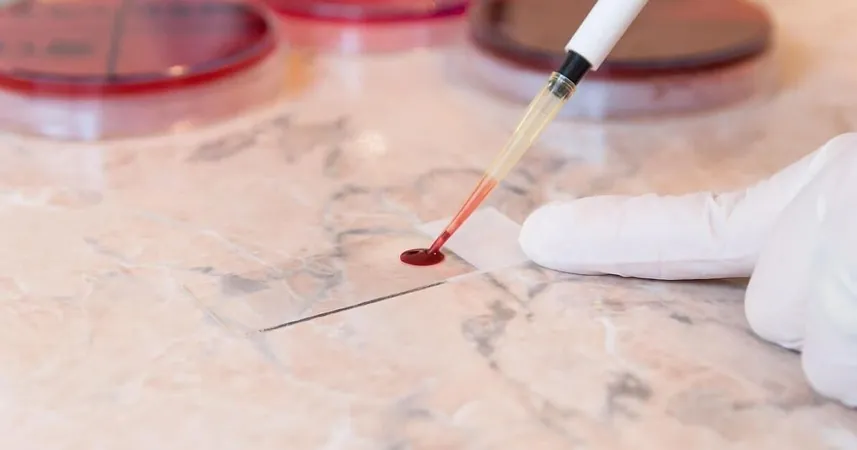
Groundbreaking Blood Test Promises Early Detection of Colon Cancer!
2025-01-28
Author: Jia
Groundbreaking Blood Test Promises Early Detection of Colon Cancer!
An innovative experimental blood test has shown remarkable potential in accurately detecting colon cancer, providing hope for millions of middle-aged and senior patients. Research presented at the prestigious 2025 American Society of Clinical Oncology Gastrointestinal Cancers Symposium unveiled that this cutting-edge test achieved an impressive 81% accuracy in identifying colon cancer in individuals diagnosed with the disease. Furthermore, it was found to be 90% effective in ruling out cancer among healthy individuals.
Dr. Aasma Shaukat, the lead researcher and a gastroenterologist at the NYU Grossman School of Medicine, emphasized the importance of this development in a recent statement. Current statistics indicate that nearly 22% of eligible individuals have never undergone colon cancer screening, with some states reporting figures exceeding 40%. "This blood test could significantly enhance screening rates," Dr. Shaukat remarked.
At present, colonoscopy remains the gold standard for screening; however, it necessitates uncomfortable bowel preparation and anesthesia. Alternatives like fecal blood tests, which must be performed annually, also have limitations. Dr. Shaukat pointed out, "The introduction of easy and safe screening options is crucial. Until now, the choices have been minimal."
The study, conducted with over 40,000 participants aged between 45 and 85 across 200 sites in the U.S., involved drawing blood samples followed by standard colonoscopy procedures. Results from the blood tests were then compared with colonoscopy findings, marking a significant advancement in cancer screening methodologies.
In a statement, Dr. Pamela Kunz, chief of GI medical oncology at the Yale School of Medicine, said, "This blood test could become an essential component in the colorectal cancer screening arsenal." She highlighted its potential as a convenient and efficient option for the average-risk population.
Researchers are committed to continuing their investigations into the long-term effectiveness of this blood test. Given its promising results, it could transform the landscape of colon cancer detection and patient care in the near future.
If you are over 45 and have yet to have a colon cancer screening, now is the time to consult your doctor about your options. Early detection can be life-saving! Stay informed and take action—your health matters!




 Brasil (PT)
Brasil (PT)
 Canada (EN)
Canada (EN)
 Chile (ES)
Chile (ES)
 Česko (CS)
Česko (CS)
 대한민국 (KO)
대한민국 (KO)
 España (ES)
España (ES)
 France (FR)
France (FR)
 Hong Kong (EN)
Hong Kong (EN)
 Italia (IT)
Italia (IT)
 日本 (JA)
日本 (JA)
 Magyarország (HU)
Magyarország (HU)
 Norge (NO)
Norge (NO)
 Polska (PL)
Polska (PL)
 Schweiz (DE)
Schweiz (DE)
 Singapore (EN)
Singapore (EN)
 Sverige (SV)
Sverige (SV)
 Suomi (FI)
Suomi (FI)
 Türkiye (TR)
Türkiye (TR)